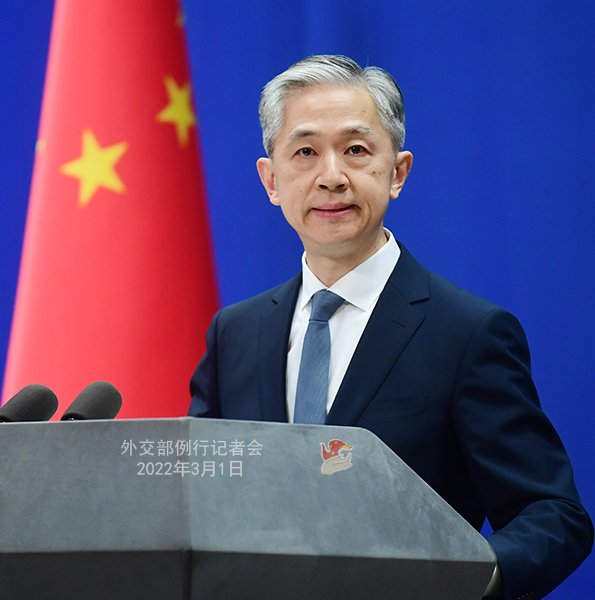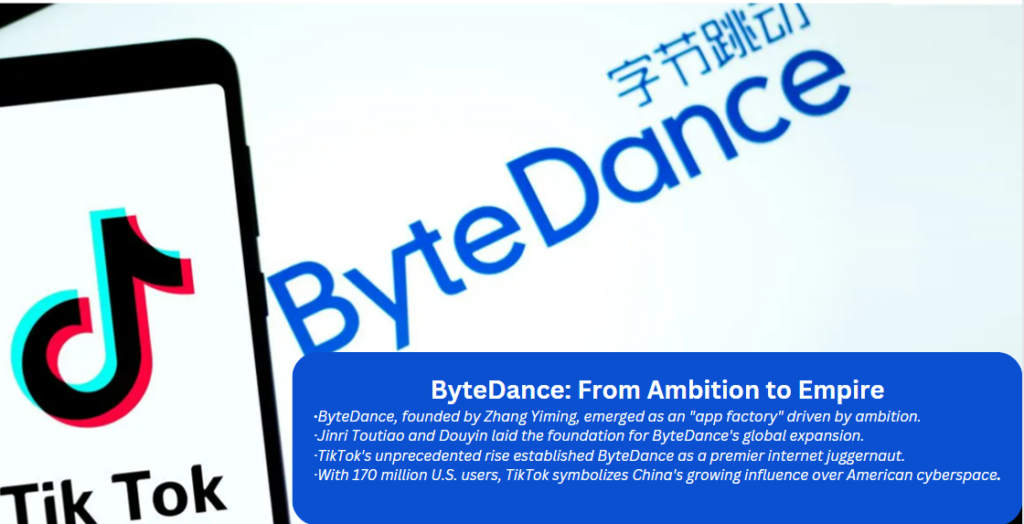Key Takeaways:
- Beijing warns of severe consequences if the U.S. proceeds with a ban on TikTok, indicating potential retaliation.
- The U.S. House of Representatives prepares to vote on severing ties between TikTok and its Chinese parent company.
- Despite rare bipartisan unity, the bill’s fate remains uncertain as it heads to the Senate, where opposition exists against a sweeping ban on TikTok.
- TikTok’s parent company, ByteDance, vehemently denies allegations of ties with the Chinese government and proposes “Project Texas” to address data security concerns.
- The potential ban faces legal challenges in U.S. courts, with experts cautioning against the hasty erosion of democratic norms in the pursuit of expediency.
In a warning issued on Wednesday, March 13, 2024, Beijing unleashed a stark prediction: should the United States proceed with its proposed ban on the Chinese-owned video-sharing app TikTok, repercussions would reverberate with vengeance. The looming decision by the US House of Representatives to vote on severing ties between the app and its Chinese parent company signals the gravest peril yet faced by TikTok, a platform that has captivated global audiences while stoking anxieties among authorities over its Beijing allegiance.
You can also read: Elon Musk’s Business Move for Renaming OpenAI to ClosedAI
As the legislative showdown loomed, Wang Wenbin, spokesperson for the foreign ministry, lashed out against the proposed ban, denouncing it as a form of coercive aggression. “Despite the absence of concrete evidence implicating TikTok in any threat to US national security, the relentless campaign against it persists,” Wang declared. “Such bullying tactics, devoid of fair competition, disrupt the normal operations of businesses, erode investor confidence in the global economic landscape, and sow discord in international trade relations.”
CEO Leads Charge Against Rushed Legislation
While condemning, Wang prophesied the inevitable reckoning awaiting the United States. “Ultimately, the consequences of these actions will boomerang upon the very fabric of American society,” he declared, leaving a chilling echo of the impending climax in the ongoing saga between two global giants.
“Ultimately, the consequences of these actions will boomerang upon the very fabric of American society.”
– Wang Wenbin, spokesperson for the foreign ministry

In an impending moment of political convergence, the vote is slated to unfold at 10:00 am (1400 GMT), poised to sail through amidst a rare display of bipartisan unity in the tumultuous corridors of Washington.
Yet, the bill’s destiny hangs in precarious balance upon its journey to the Senate, where influential voices vehemently oppose such a sweeping assault on a beloved platform boasting 170 million fervent US adherents.
If the bill successfully navigates the Senate’s treacherous waters and reaches President Joe Biden’s desk, the White House has pledged unwavering support. They vow to enshrine it into law under the banner of the “Protecting Americans from Foreign Adversary Controlled Applications Act.”
Defiant in the face of allegations, TikTok adamantly refutes any entanglement with the Chinese government, asserting a revamped corporate structure aimed at safeguarding the data of its American user base within national borders.
Meanwhile, TikTok’s CEO, Shou Zi Chew, wages an uphill battle in the hallowed halls of Washington, rallying allies to stave off the legislative onslaught.
Michael Beckerman, TikTok’s vice president for public policy, lambasts the hurried legislation as an affront to constitutional principles, cautioning against the precipitous erosion of democratic norms in the pursuit of expediency.
China’s Influence on American Cyberspace Draws Closer Scrutiny
As the gavel fell and votes were cast, a tangible tension gripped the chamber. The measure, if passed, would wield the sword of authority, potentially forcing the sale or banishment of the ubiquitous video-sharing app. At its core lay profound concerns that TikTok, born of Chinese ownership, could morph into a tool for surveillance and manipulation, preying upon the very fabric of American society.
The tally, a culmination of bipartisan unease, heralded a climax in the battle against the encroaching shadows of foreign influence. With 170 million U.S. users in its grasp, TikTok stood as a potent symbol of China’s burgeoning sway over American cyberspace, casting a looming shadow over the forthcoming elections.
The stakes couldn’t be higher, as the legislation now finds its destiny in the hands of the Senate. Should it find favor there, the clock would begin ticking for TikTok’s parent company, ByteDance, a behemoth birthed from the innovation of a solitary software engineer in a Beijing apartment.
ByteDance christened the “app factory” for its relentless output of digital marvels, burgeoned from the seeds of ambition planted by its founder, Zhang Yiming. His dream of utilizing big data and machine learning to tailor content to individual tastes birthed not just a company, but a digital empire.

Central to this empire is TikTok, a phenomenon that transcended borders, becoming the vanguard of China’s technological might on the global stage. Yet, nestled within its meteoric rise lies a specter of distrust, a fear that the data of millions could be harvested and exploited under the cloak of Chinese law.
Inside ‘Project Texas’ and the Future of TikTok’s Data Security
One of ByteDance’s earliest and most revered creations is the AI-powered news curator, Jinri Toutiao, a sensation predominantly in China. In 2016, the tech giant unveiled Douyin, a short video platform that swiftly captured the hearts of millions in China. The following year saw the birth of its international counterpart, TikTok.
TikTok’s meteoric rise marked a pivotal moment, heralding the first Chinese app to conquer global shores. Valued at a staggering $268 billion as of December, ByteDance ascended as one of China’s premier internet juggernauts. In a statement released last May, TikTok revealed that a substantial 60 percent ownership lies in the hands of global institutional investors such as Carlyle Group, General Atlantic, and Susquehanna International Group. About 20 percent is vested in ByteDance employees worldwide, with the remaining portion resting with its founder.
Yet, TikTok’s ascent wasn’t devoid of turbulence. It found itself in the crosshairs of certain U.S. legislators, viewing it through the lens of a potential national security peril, amid escalating tensions between Washington and Beijing. ByteDance adamantly refuted claims of data sharing with Chinese authorities, emphasizing its adherence to stringent privacy protocols. However, skepticism lingered among U.S. lawmakers, citing potential obligations under Chinese law.
In a pivotal hearing before the House Committee on Energy and Commerce in March 2023, TikTok’s CEO, Shou Zi Chew, vehemently defended the company’s integrity, affirming its allegiance to U.S. jurisdiction. He categorically declared ByteDance’s independence from any foreign influence, asserting its status as a U.S. entity.
To assuage concerns, ByteDance proposed “Project Texas,” seeking approval for its U.S. subsidiary to oversee the management of protected user data within the United States. The subsidiary, TikTok U.S. Data Security, would operate under an independent board, distinct from TikTok or ByteDance leadership. Oracle, headquartered in Austin, would be tasked with storing U.S. user data, ensuring controlled and monitored access to the global TikTok service.
Nonetheless, the road ahead remains fraught with challenges. Experts caution that any forced divestiture or ban could encounter legal hurdles in U.S. courts. The failed 2020 attempt by former President Donald Trump to ban or force a sale of TikTok serves as a stark reminder of the complexities involved, with federal courts ruling against the government’s assertions of national security threats.


